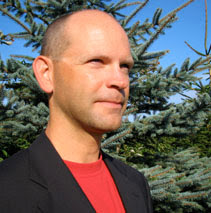What is your strategy for success? – If you don’t have a strategy then you need to make one. Without a strategy you won’t get far. First of all you need to define your future and start creating it. When you develop your strategy and plan have to realise it you have to bare in mind that the world is dynamic and you do not control it. You have to learn how to navigate in a complex world of flux and find the optimal way to go. To navigate you need your strategy and planning. Along the way you will have to revise your strategy and plans, because the rest of this world does not have the same visions as you do. So, be flexible and be prepared to take another way to reach your success.
Right now you may find yourself doing this and that, hoping to be more successful, but all you get is no-where and stress. - Why is that, you ask yourself, and the answer is – because you do it at random, you don’t have a strategy!
To make this strategy you have to be clarified about what your visions are. Let’s say you want to start you own business in coaching other people on some specific topic. To do this you need to discover all the resources that are needed to start this business. When you know what it takes then you have ask yourself: - Do I have these resources? If the answer is no, then you have to find them before you continue. In this case you could form a long term strategy like this: “My strategy is to start a coaching business to become independent”. Next step is to make a more specific resource strategy that could sound a bit like: “My resource strategy is to discover the resources I need and find out how to get them. I will put focus on three areas – first, my physical and mental resources; second, my qualifications and competencies and third, other resources.”
With this simple strategy you can start planning the first area of focus, physical and mental resources; after that, you can move on to your qualifications. This way you will work your way, following a flexible plan, towards your goals.
Be careful not to make rigid plans and tight schedules – you cannot control the world, you can only steer your way through the landscape of life.
If you manage an organisation, the same principles apply; only be aware that the organisation is not an individual, but consists of more individuals whose resources need to be taken into consideration.
